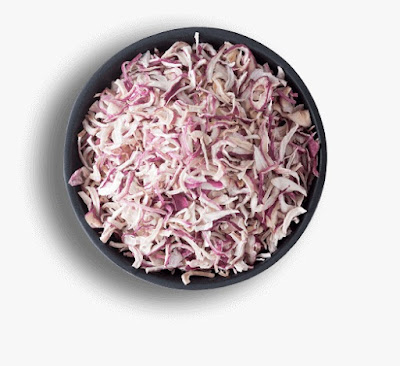Understanding Dehydrated Vegetables: A Nutritional Powerhouse
Nowadays, dehydrated vegetables are a common sight in kitchens due to their nutritious value, durability, and ease of use. With our hectic schedules and rising food prices, knowing the benefits of dehydrated veggies might help us make better dietary decisions.
What Are Dehydrated Vegetables?
Vegetables that have been dehydrated are fresh vegetables that have had the majority of their moisture extracted using different drying techniques. Because to the preservation of their nutrition, flavor, and color, they can be kept in storage for long periods of time without going bad. Using dehydrators or ovens, air drying, and sun drying are common techniques for dehydration. While the texture and flavor of the veggies may be affected by each technique, the overall goal is to drastically lower the moisture level.
Nutritional Benefits
The nutritional profile of dehydrated veggies is one of their biggest benefits. Vegetables retain most of their vitamins and minerals when properly dehydrated. Carrots, tomatoes, and bell peppers, for example, are high in potassium, vitamin C, and important minerals. Vegetables that have been dehydrated are a great complement to a balanced diet since they offer a concentrated amount of essential elements.
Furthermore, because they don't have the water content that adds volume, dried veggies frequently have fewer calories than their fresh counterparts. They can therefore be a fantastic choice for people trying to control their weight without compromising on taste or nutrition.
Convenience and Versatility
It is impossible to overestimate how convenient dehydrated veggies are. They are perfect for camping, trekking, and emergency food supplies because they are lightweight, don't need to be refrigerated, and have a long shelf life. They may instantly infuse soups, stews, casseroles, and salads with flavor and nutrients when you're in a rush. All you need to do is rehydrate them for a few minutes in broth or water.
Dehydrated vegetables' adaptability creates a plethora of culinary opportunities. You can combine various types to make your own special concoctions that will improve the flavor of your food. For instance, adding dried onions, garlic, and bell peppers to any recipe can improve it considerably with little work.
Cost-Effectiveness
In a time when food costs are always rising, dehydrated veggies can save a lot of money. Fresh vegetables can be costly and wasteful if not consumed right away. On the other hand, dehydrated veggies can be bought in large quantities and kept for months or even years, which lowers the total cost of grocery expenses. They also let you enjoy seasonal vegetables all year long without having to pay the higher prices associated with produce that is harvested outside of season.
Environmental Impact
Selecting dehydrated veggies can also be a more environmentally friendly choice. You're choosing sustainably when you use products with lower energy requirements for storage and minimize food waste. Dehydration is more environmentally friendly than freezing since it uses less energy. Additionally, dehydrated veggies cut down on the number of supermarket trips needed because of their longer shelf life, which lowers transportation-related emissions.
How to Use Dehydrated Vegetables
Incorporating dehydrated vegetables into your diet is simple. Here are a few practical tips:
Rehydration: Dehydrated vegetables usually require rehydration prior to use. Let them soak in either 15 or 30 minutes of warm water, depending on the kind of vegetable. As an alternative, you may add them straight to stews and soups; just remember to factor in the extra liquid that will be required.
Cooking: A variety of meals can make use of dehydrated vegetables. For an added nutritional boost, add them to stir-fries, grain bowls, and pasta sauces. They work especially well in slow-cooked recipes because the longer cooking time helps the ingredients rehydrate and absorb flavors.
Snacking: You can season and bake some dehydrated veggies, such zucchini or kale, to make crispy nibbles. This keeps the delicious crunch of regular chips but is a healthier option.
Storage: To extend the shelf life of dehydrated veggies, keep them in airtight containers in a cold, dark environment. For long-term storage, vacuum-sealed containers are the best option.
Conclusion
Dehydrated veggies are a useful answer to many contemporary problems, in addition to being a convenient food choice. They have shown to be a helpful tool in the kitchen, improving nutritional intake, cutting down on food waste, and serving as a versatile element for a variety of cuisines. As you delve deeper into the realm of dehydrated veggies, you'll learn about their advantages as well as the delight of using these savory powerhouses in your cooking. Dehydrated veggies can improve your cooking while promoting your health and way of life, regardless of your level of experience.



Comments
Post a Comment